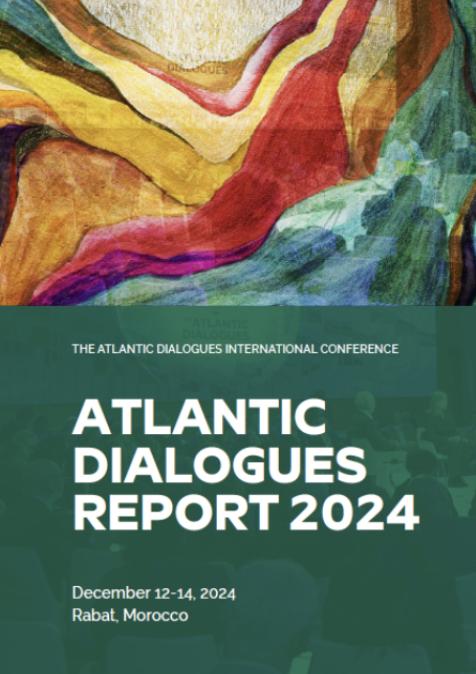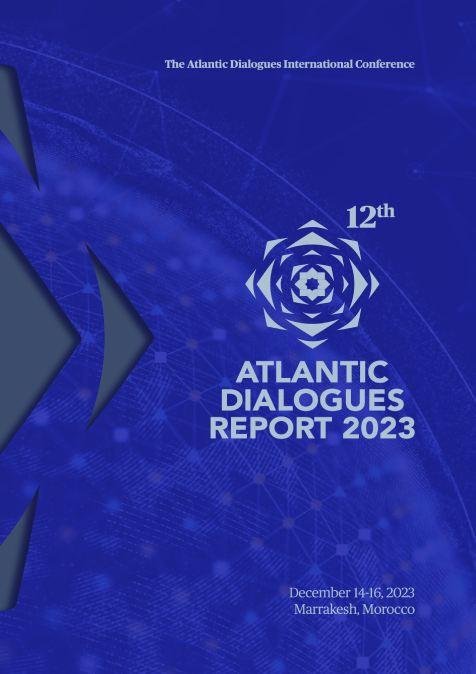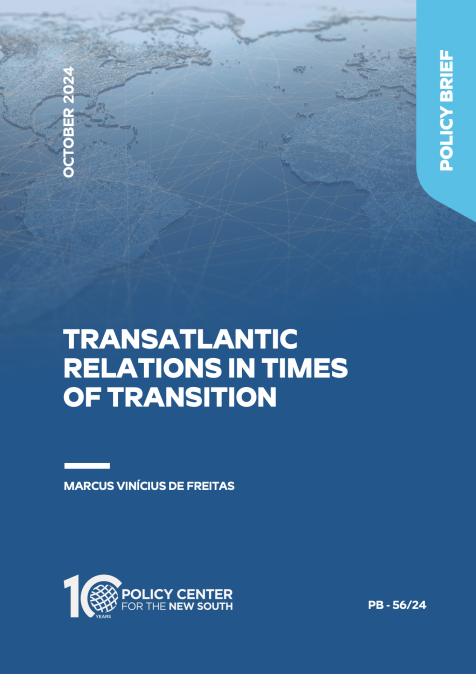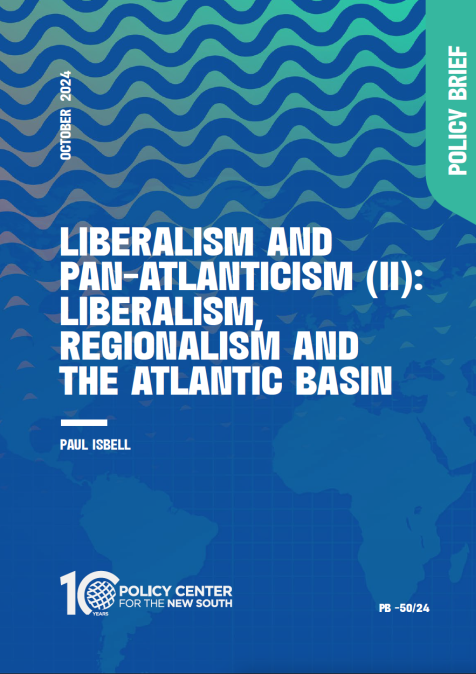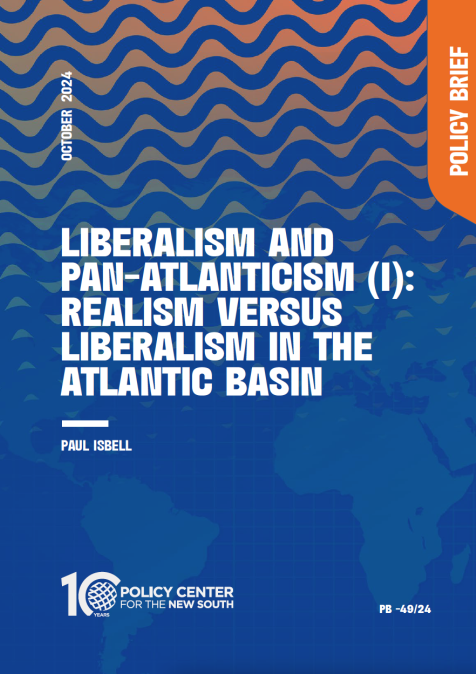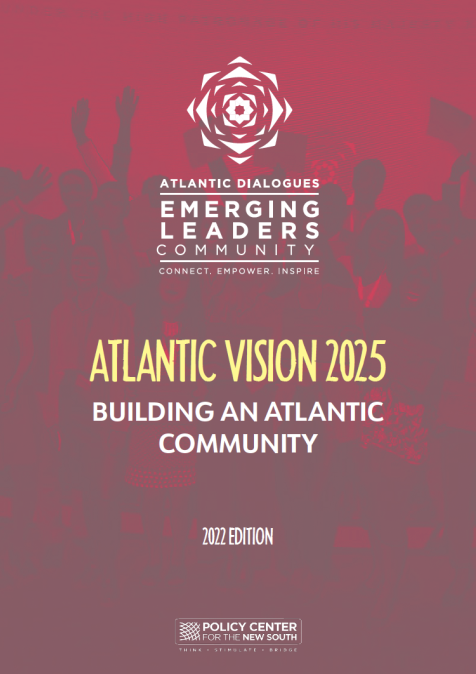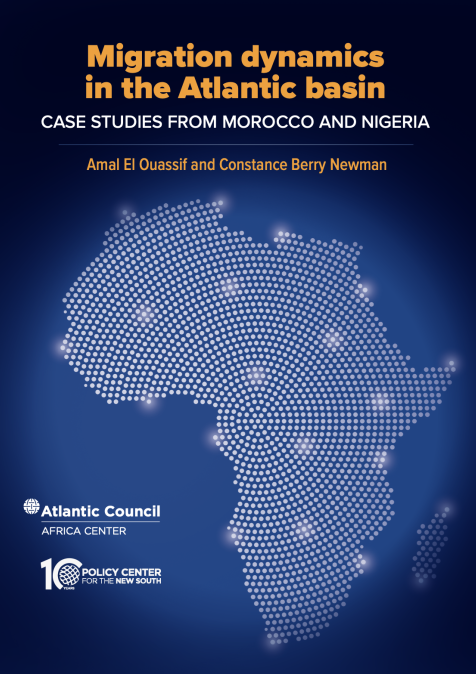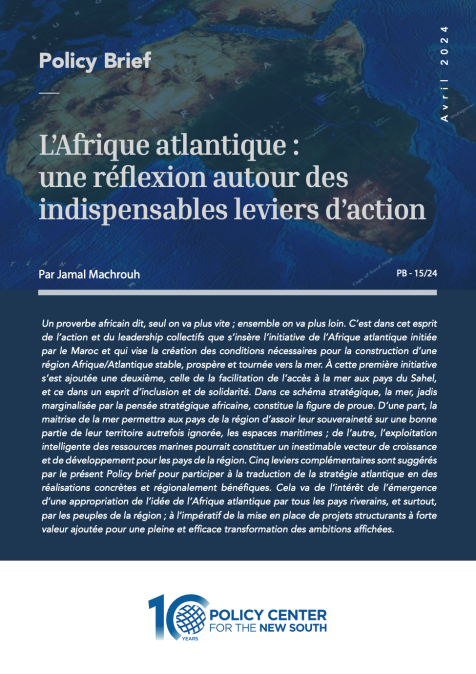Publications /
Book / Report
The Atlantic Dialogues conference continues to serve as a premier platform for dialogue, cooperation, and bridge- building, fostering meaningful exchanges that transcend geographical and ideological divides. Since its inception in 2012, it has evolved into a dynamic space where ideas converge, diverse perspectives are shared, and innovative strategies are developed to navigate the complexities of an ever-changing world.
Anchored in the foundational values of openness, inclusivity, and diversity—both in backgrounds and disciplines—the Atlantic Dialogues has created a community of over 2,000 thought leaders and practitioners. These individuals embrace its mission to challenge conventional mental maps and contribute to solutions for pressing global challenges, including climate change, rising nationalism, and the erosion of multilateralism.
The Atlantic Dialogues is not an isolated initiative but rather a flagship component of the Policy Center for the New South’s (PCNS) broader efforts to reimagine the Atlantic space. It is part of the Center’s Wider Atlantic Research Program, which encompasses a wide range of publications, partnerships, and events developed in collaboration with key institutions committed to redefining transatlantic relations. To date, PCNS has produced 25 books and reports, 45 policy briefs, policy papers, and research papers, as well as 17 op- eds focused on Atlantic issues. It has also organized over 90 events and major convenings centered on the Atlantic, with The Atlantic Dialogues serving as a cornerstone of this work. A notable initiative within this ecosystem is the Atlantic Strategy Group, an annual meeting launched in 2015 that explores critical developments shaping Atlantic geopolitics, geo-economics, and transatlantic relations more broadly. The 13th edition of The Atlantic Dialogues, held under the High Patronage of His Majesty King Mohammed VI, was a milestone event, marked by significant transformations. For the first time in over a decade, the conference was hosted in Morocco’s capital, Rabat, establishing a permanent home at the PCNS’s headquarters. This edition gathered more than 450 distinguished participants—including high-ranking officials, decision-makers, and experts from over 65 countries—to engage in critical discussions on shared policy challenges and opportunities across the four continents of the Atlantic Basin. At the heart of these discussions was the concept of the Wider Atlantic, the conference’s cornerstone and a vision pioneered and championed by PCNS for over a decade. This framework highlights the growing importance of the South Atlantic in both the Atlantic dialogue and the broader geopolitical landscape.
To enhance engagement, the 13th edition introduced an innovative circular stage, fostering a closer and more interactive setting between speakers and the audience. This design encouraged deeper, more dynamic exchanges, expertly facilitated by skilled moderators.
The commitment to inclusivity and balance was also reflected in the conference’s participant demographics: 79% of attendees hailed from Atlantic-bordering nations, and 51% represented countries from the Global South. These figures reaffirm the PCNS’s dedication to a truly representative and equitable Atlantic dialogue, where voices from both the Global South and North contribute equally to shaping rigorous, thoughtful analyses of the region’s most pressing issues.
By continuously expanding the scope of Atlantic cooperation, the Atlantic Dialogues conference plays a pivotal role in redefining global conversations, ensuring that perspectives from the South are not only included but also drive the agenda for a more balanced and forward-thinking Atlantic future.
This edition underscored the importance of innovative policymaking, multilateral cooperation, and inclusive leadership in driving meaningful global change. In an era defined by geopolitical shifts, economic uncertainty, and the urgent need for sustainable development, the Global South is increasingly asserting its agency in shaping its own future.
A key theme that emerged was the need to move beyond dependency models and toward initiatives that empower the South to lead, define, and implement solutions tailored to its own realities.
Morocco’s Royal Atlantic Initiative exemplifies this transformative approach. As an African-led project championed under the leadership of His Majesty King Mohammed VI, this initiative reimagines Atlantic cooperation by prioritizing African ownership and regional integration. Its focus on economic connectivity, security, energy, and global partnerships demonstrates how the South can not only participate in but also shape global discourse. The initiative aligns with broader frameworks like the African Continental Free Trade Area (AfCFTA), while fostering South- South cooperation, demonstrating that Africa’s stability and prosperity are global priorities.
Discussions also highlighted the critical role of knowledge- sharing and technological collaboration. The Royal Atlantic Initiative extends beyond Africa, uniting Atlantic nations through technology, cybersecurity, and economic cooperation to tackle shared challenges. This approach supports the broader call for think tanks and research institutions to play a more proactive role in policy innovation. Breaking institutional silos, fostering cross-sectoral partnerships, and investing in the next generation of leaders will be critical to ensuring the long-term success of such initiatives.
Another key takeaway from the conference was the growing recognition of cultural diplomacy as a fundamental pillar of international relations. Unlike traditional diplomacy, cultural diplomacy fosters lasting collaboration through arts, heritage, and creative industries. Panelists emphasized how heritage diplomacy strengthens global unity, while creative industries and sports serve as economic drivers that shape global perceptions. The South’s cultural power, particularly in music, storytelling, and cuisine, was highlighted as a powerful tool for strengthening international cooperation and fostering mutual understanding. These elements serve as bridges between communities, reinforcing the role of soft power in shaping a more inclusive world order.
At the heart of this transformation is youth leadership, whose resilience and innovation are shaping the trajectory of the South and beyond. Discussions highlighted the younger generation’s adaptability in navigating an uncertain job market, their emphasis on cross-cultural collaboration, and their commitment to actionable change. Young leaders are leveraging technology, championing intergenerational dialogue, and driving meaningful progress.
This vision aligns with initiatives such as PCNS’s ADEL program, which empowers 40 emerging leaders each year to actively participate in policy discussions and join an interconnected community of young change-makers.
Ultimately, this edition reinforced a crucial message: the Global South is not a passive actor but an active architect of its future. Through strategic initiatives like the Royal Atlantic Initiative, sustained investment in education and innovation, and the harnessing of cultural and economic power, the South is demonstrating its ability to shape global governance and development on its own terms. The path forward requires continued collaboration, bold policymaking, and a commitment to ensuring that today’s solutions lay the groundwork for a more inclusive and resilient tomorrow.
Karim El Aynaoui
Executive President, Policy Center for the New South

